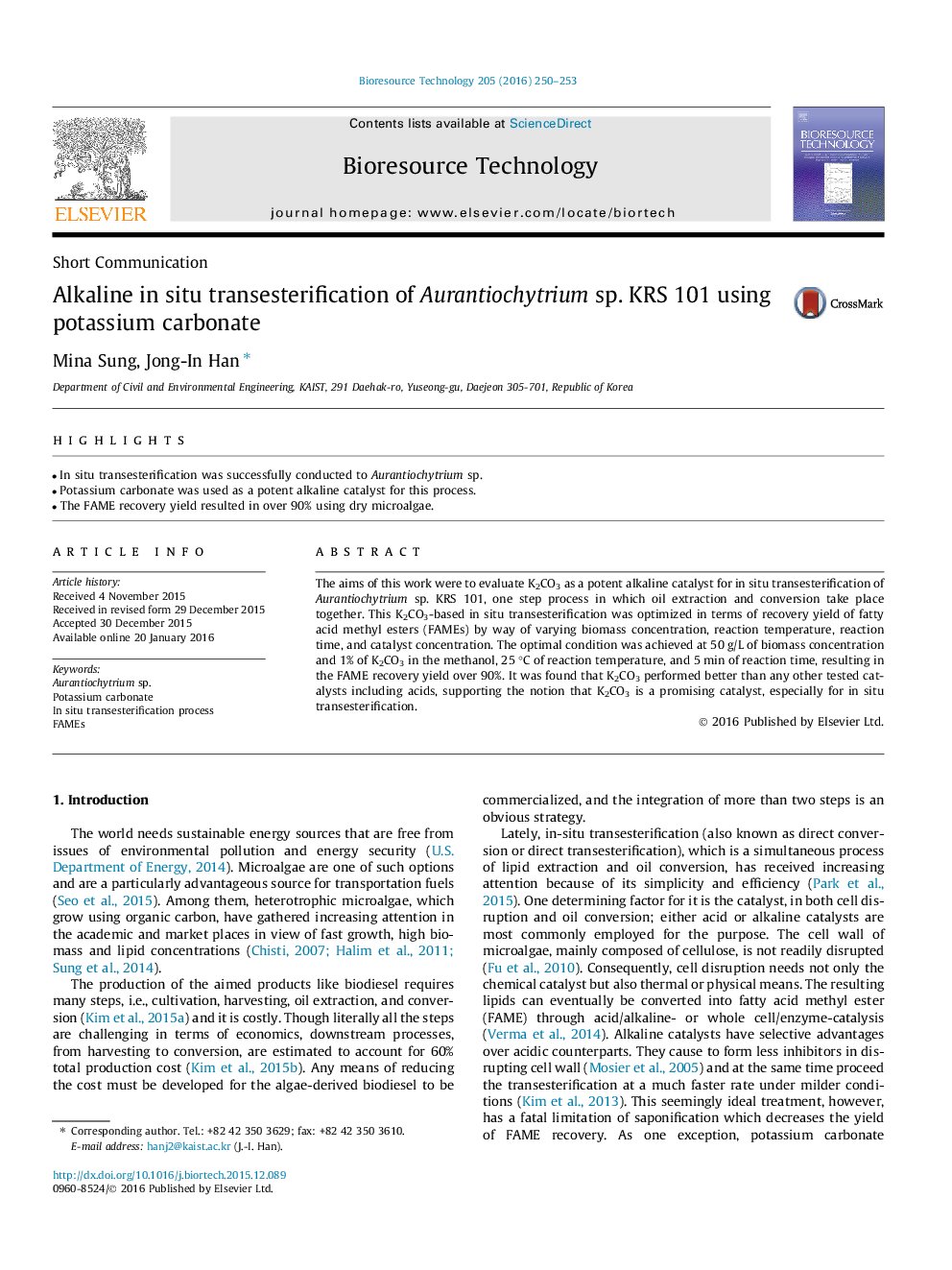| Article ID | Journal | Published Year | Pages | File Type |
|---|---|---|---|---|
| 679282 | Bioresource Technology | 2016 | 4 Pages |
•In situ transesterification was successfully conducted to Aurantiochytrium sp.•Potassium carbonate was used as a potent alkaline catalyst for this process.•The FAME recovery yield resulted in over 90% using dry microalgae.
The aims of this work were to evaluate K2CO3 as a potent alkaline catalyst for in situ transesterification of Aurantiochytrium sp. KRS 101, one step process in which oil extraction and conversion take place together. This K2CO3-based in situ transesterification was optimized in terms of recovery yield of fatty acid methyl esters (FAMEs) by way of varying biomass concentration, reaction temperature, reaction time, and catalyst concentration. The optimal condition was achieved at 50 g/L of biomass concentration and 1% of K2CO3 in the methanol, 25 °C of reaction temperature, and 5 min of reaction time, resulting in the FAME recovery yield over 90%. It was found that K2CO3 performed better than any other tested catalysts including acids, supporting the notion that K2CO3 is a promising catalyst, especially for in situ transesterification.
